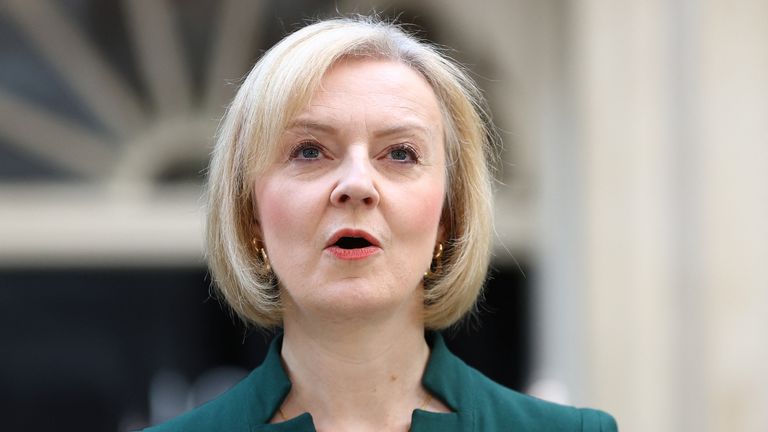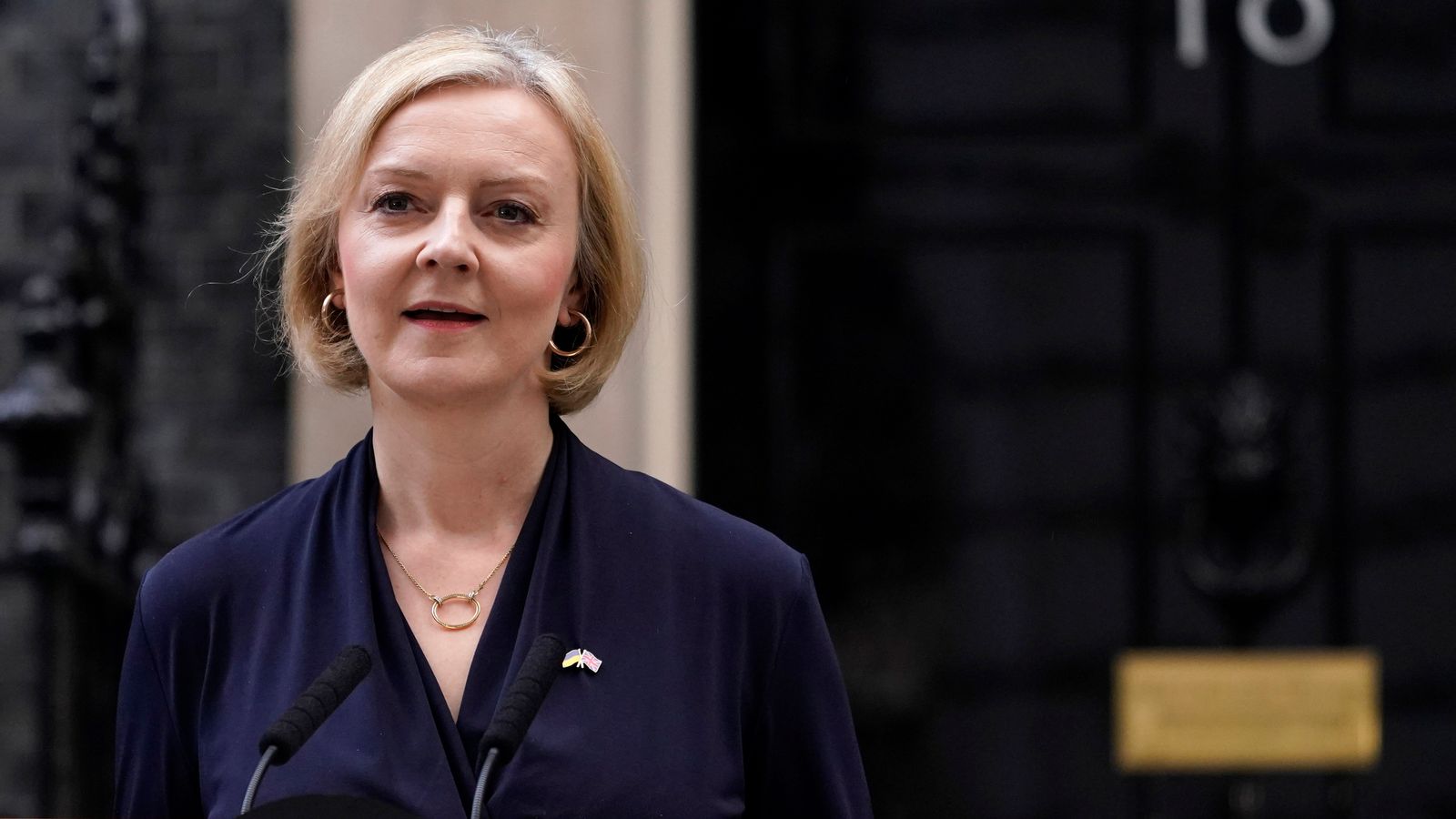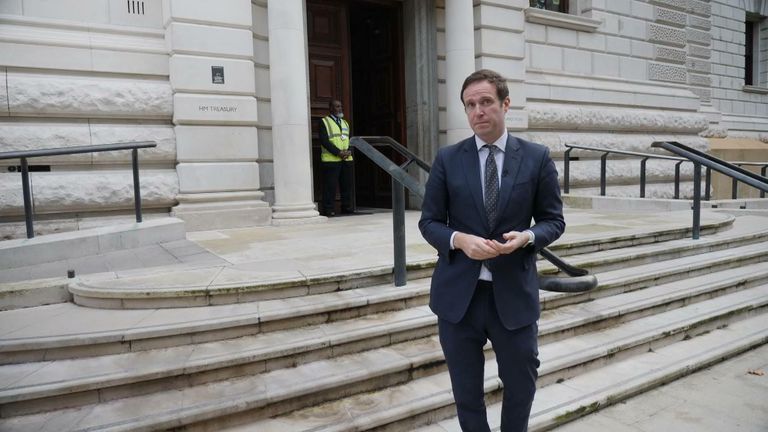
Former prime minister Liz Truss has said she was never given a “realistic chance” to implement her radical tax-cutting agenda and blamed what she called a “powerful economic establishment” for removing her from Downing Street.
In her first detailed comments since she was ousted from Number 10, Ms Truss said she had not appreciated the strength of the resistance she would face to her plans.
She said she was not “claiming to be blameless” over the way chancellor Kwasi Kwarteng’s mini-budget unravelled – but she still believed her approach to driving growth was the right one.
Read more: Analysis – Truss may be no Messiah but her political comeback has rattled some MPs
‘How wrong I was’
Writing in The Sunday Telegraph, she said: “I am not claiming to be blameless in what happened, but fundamentally I was not given a realistic chance to enact my policies by a very powerful economic establishment, coupled with a lack of political support.
“I assumed upon entering Downing Street that my mandate would be respected and accepted. How wrong I was. While I anticipated resistance to my programme from the system, I underestimated the extent of it.
“Similarly, I underestimated the resistance inside the Conservative parliamentary party to move to a lower-tax, less-regulated economy.”
Shortest-serving prime minister
Taking office on 6 September 2022, Ms Truss said her priorities would be growing the economy through “tax cuts and reform”, dealing “hands on” with the energy crisis, and improving access to the NHS.
However just 44 days after taking over from Boris Johnson, she was forced to resign, making her the shortest-serving prime minister in British history.
Read more:
Liz Truss becomes shortest-serving PM
What did Liz Truss accomplish during her time in office?
While her experience last autumn was personally “bruising”, Ms Truss believed that over the medium term her policies would have increased growth and brought down debt.
She said she had not been warned of the risks to the bond markets from liability-driven investments (LDIs), bought up by pension funds, which forced the Bank of England to step in to prevent them collapsing as the cost of government borrowing soared.
“Only now can I appreciate what a delicate tinderbox we were dealing with in respect of the LDIs,” she said.
“It rapidly became a market stability issue and we had to act to stabilise the situation. While the government was focused on investigating what had happened and taking action to remedy the situation, political and media commentators cast an immediate verdict blaming the mini-budget.
“Regrettably, the government became a useful scapegoat for problems that had been brewing over a number of months.”
She said that while, with the benefit of hindsight, she would have acted differently, she said that she had had to battle against the “instinctive views of the Treasury” and “the wider orthodox economic ecosystem”.
She said that her and Mr Kwarteng’s plan for growth – with its combination of tax cuts and deregulation to kickstart the stalled economy – had represented a conscious break with the “left-wards” drift of economic thinking, which was resented by some powerful forces.
“Frankly, we were also pushing water uphill. Large parts of the media and the wider public sphere had become unfamiliar with key arguments about tax and economic policy and over time sentiment had shifted left-wards,” she said.
She said the furore over her plan to abolish the 45p top rate of income tax – not least from within her own party – was illustrative of the difficulties she faced.
“Even though the measure was economically sound, I underestimated the political backlash I would face, which focused almost entirely on the ‘optics’,” she said.
Click to subscribe to the Sky News Daily wherever you get your podcasts
Tory peer Lord Barwell, who was Theresa May’s chief of staff, was scathing about Ms Truss’s explanation for the failure of her premiership.
“You were brought down because in a matter of weeks you lost the confidence of the financial markets, the electorate and your own MPs,” he tweeted.
“During a profound cost of living crisis, you thought it was a priority to cut tax for the richest people in the country.”
Labour shadow chancellor Rachel Reeves said: “The Conservatives crashed the economy, sank the pound, put pensions in peril and made working people pay the price through higher mortgages for years to come.
“After 13 years of low growth, squeezed wages and higher taxes under the Tories, only Labour offers the leadership and ideas to fix our economy and to get it growing.”










